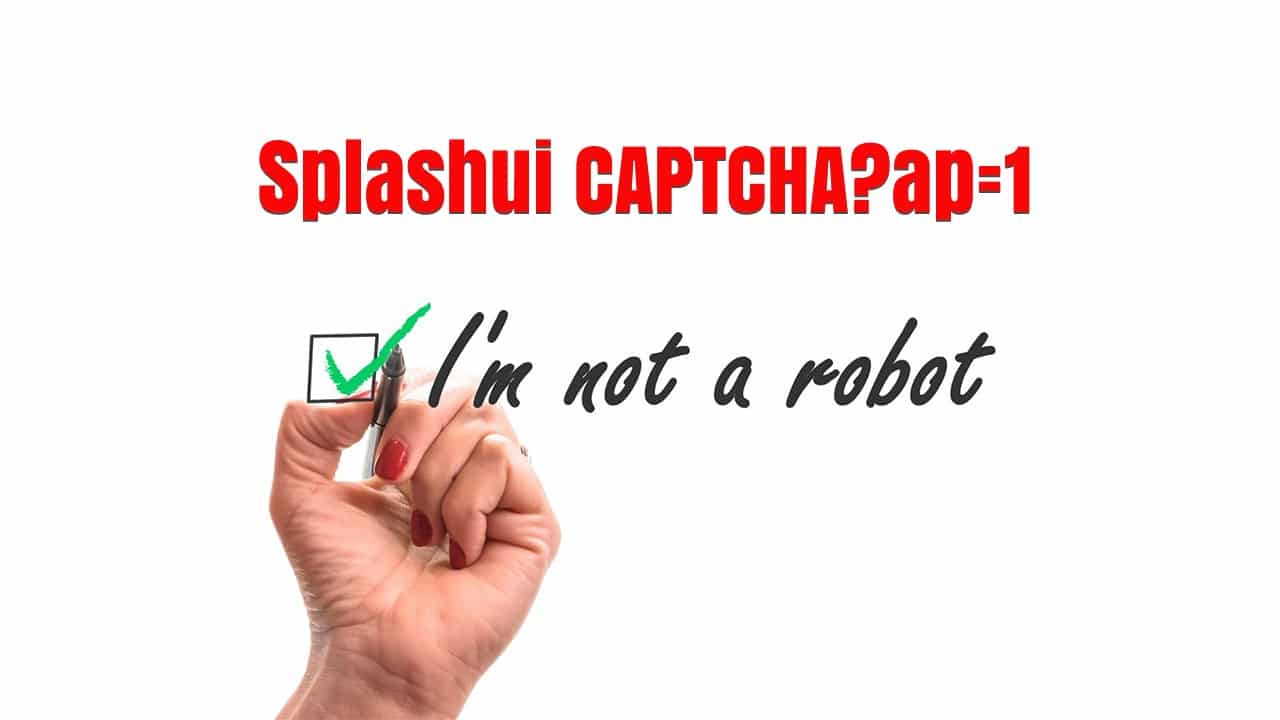Are you dreaming of crafting sleek web applications or diving into the tech industry as a skilled programmer? You may have heard whispers about the elegance and power of Ruby, a programming language cherished for its simplicity and productivity. But how to become a Ruby developer in 2024?
Ruby is not just user-friendly; it mirrors the flow of natural language, making it an excellent choice for those embarking on their coding voyage. This guide illuminates the path from novice to Ruby Developer extraordinaire — with practical steps tailored to cultivate your skills in this dynamic and expressive language.
We’ll share insights on what makes Ruby shine, strategies to master its syntax, and ways to conquer real-world development challenges.
By following our roadmap, you can confidently navigate the terrain of Ruby programming, ultimately scripting your success story in code. Ready? Let’s start this transformative adventure together!
Content Highlights
- Ruby developers create web applications using the Ruby language, especially with the Ruby on Rails framework. They need skills in writing code, fixing bugs, and making user-friendly designs.
- Learning Ruby involves understanding its basics, object-oriented programming, and mastering tools like Git for tracking changes. Developers also need to keep their skills fresh by going to meetups and learning from others.
- Building apps that show off your Ruby skills can help start your career. It’s important to write code that is clean and works well, which means testing it a lot before people use it.
- Being good at working with others is key for Ruby developers because they often share ideas and solve problems together. They also need to be able to explain things clearly so everyone understands.
- To get ready for job interviews as a Ruby developer, practice answering questions about how you would use your skills in real work situations.
What is a Ruby Developer?
A Ruby Developer is a professional who specializes in using the Ruby programming language to develop software applications, websites, and other digital solutions. They are responsible for writing code, debugging, testing, and optimizing software to meet specific requirements.
Key skills for a Ruby Developer include fluency in Ruby syntax, object-oriented programming principles, database integration and management, RESTful APIs, and web services. The role often involves working with the popular web framework Ruby on Rails to build efficient and scalable web applications.
What is Ruby?
Ruby is a programming language that people love because it’s flexible and fun to use. It was made to help developers enjoy their work. With Ruby, you can write clean code really fast.
This language supports something called object-oriented programming, which means everything in Ruby acts like a little box that can hold information or do tasks.
Using Ruby feels smooth because it’s designed to be easy on the eyes and make sense quickly. You don’t waste time trying to figure out complex code. And since lots of programmers contribute their ideas and tools for Ruby, there is always help if you get stuck.
Plus, big companies trust Ruby for important jobs, so knowing it can open up great chances for coders.
Job Responsibilities of a Ruby Developer
After learning about Ruby, it’s time to dive into what a Ruby developer does day-to-day. These tech pros use their skills to build and manage software applications. They write clean code that makes computers do tasks.
A big part of the job is creating web apps with Ruby on Rails. This means setting up things like online stores or social media sites.
Ruby developers have many important jobs every day. They must make sure their programs work well and fix any problems that come up. They also update old code to keep apps running smoothly.
Working with databases is another key task for them, as is making sure users can get around the app easily through good design. Their goal is always to create programs that are reliable and easy for people to use.
Key Skills of a Ruby Developer
Key skills for Ruby developers include being really good at the Ruby language. They also need to know how to build and look after databases. It’s important they can work with web services like RESTful APIs, too.
Should write clean code that people can rely on and fix easily
Good communication helps them share ideas and work well with others. They often use tools like Git for version control, making sure changes in the code are tracked correctly. Skills in HTML and CSS matter a lot because they help make websites look great and work smoothly.
Solve problems by thinking clearly and finding smart answers
Ruby developers don’t just type code all day; they have to check it works well, too! This means testing their own programs automatically to find mistakes early on. All of this takes practice, but if you keep learning, you’ll grow into an expert developer over time.
Day-to-day tasks
Ruby developers write efficient and clean code every day. They create, maintain, and improve applications using the Ruby programming language. In addition to coding, they may also have other roles within the development process.
What does a Ruby Developer do?
A Ruby Developer uses the Ruby programming language to create software applications and websites. They write clean and efficient code to build digital tools that meet specific needs.
Specifically, a Ruby on Rails developer utilizes the Ruby on Rails framework to construct web applications like online shops or social media platforms. This involves understanding client requirements, designing solutions, and implementing features while ensuring the functionality and usability of the final product.
In addition, they work with databases, integrate APIs, conduct testing for reliability, and collaborate with team members throughout the development process. By applying their expertise in coding and problem-solving skills, Ruby Developers play a crucial role in bringing innovative digital solutions to life.
Benefits of using Ruby for development
With its object-oriented approach and ease of programming, Ruby facilitates efficient web development. This high-level language allows for quick prototyping and iteration, enhancing productivity for developers.
Additionally, the multi-threading or native capability of Ruby makes it a valuable tool for building scalable solutions in a dynamic environment.
Ruby promotes clean and readable code with its simple syntax, reducing the time required for development and maintenance. Its community-driven nature also ensures continuous improvement through open-source contributions, making it a robust choice for long-term projects.
How to Become a Ruby Developer: 10 Key Steps
To become a successful Ruby developer, it’s important to follow these 10 key steps: Learn core Ruby language fundamentals, study object-oriented programming principles, master the Ruby on Rails web framework, build portfolio apps showcasing your skills, understand Git version control system, implement automated testing, focus on debugging and performance optimization, stay current through Ruby conferences/meetups, and prepare for technical interviews.
Each step plays a crucial role in mastering the Ruby programming language and becoming an expert developer.
Learn core Ruby language fundamentals
Mastering the core Ruby language fundamentals is a crucial first step for aspiring developers. Ruby’s simplicity and expressiveness make it an ideal choice, especially for beginners.
Understanding basic concepts such as variables, data types, control structures, and methods lays a solid foundation for building more complex programs. With resources like “Learn to Program” by Chris Pine readily available, mastering these fundamentals becomes accessible to anyone looking to dive into the world of programming with Ruby.
As one of the easiest languages to grasp, focusing on productivity in program development, learning these fundamental principles sets the stage for further exploration and growth as a developer.
Study object-oriented programming principles
After mastering the core Ruby language fundamentals, the next step is to delve into studying object-oriented programming principles. Object-oriented programming (OOP) is a key paradigm in Ruby which uses classes as blueprints for creating objects.
It’s crucial to understand how to create and use classes, encapsulation, inheritance, and polymorphism. These concepts form the foundation of building robust and scalable applications in Ruby.
By grasping these principles, you’ll be able to design efficient data structures and optimize code reusability, setting a solid groundwork for your journey toward becoming a proficient Ruby developer.
Master the Ruby on Rails web framework
Now that you have studied the fundamentals of the Ruby language and grasped object-oriented programming principles, it’s time to master the Ruby on Rails web framework. This powerful tool allows for the swift development of web applications.
With its convention over configuration approach, you can build robust and scalable applications in less time compared to other frameworks. Moreover, Ruby on Rails comes with a rich set of libraries and tools that enhance productivity while maintaining code quality.
Employing agile development practices, Ruby on Rails facilitates collaborative work among developers, enabling efficient coordination to deliver high-quality software products within shorter timelines.
Build portfolio apps showcasing Ruby skills
To demonstrate proficiency in Ruby and kickstart your career, building portfolio apps is crucial. Aspiring developers can showcase their skills in building apps with Ruby on Rails through these portfolios.
By focusing on showcasing key skills through portfolio apps, programmers using Ruby can effectively highlight their expertise in programming and software engineering. Entry-level developers can leverage portfolios to display their proficiency and gain recognition for their abilities.
Understand the Git version control system
Git is a vital tool used by software developers for managing code and collaborating on projects. Mastering Git is crucial for effective version control, keeping code updated, and working seamlessly with others.
It allows developers to track changes in their code, revert to previous versions when needed, and collaborate with team members efficiently. Understanding the core concepts of Git will help you become a proficient Ruby developer, ensuring that your work is organized, traceable, and easy to manage.
By grasping the fundamentals of the Git version control system, you can easily streamline your development workflow while maintaining the integrity of your codebase. This knowledge will not only make you an asset to any development team but also set you apart as a skilled and efficient Ruby developer.
Learn and implement automated testing
Understanding the Git version control system sets the stage for the next crucial step in becoming a proficient Ruby developer: learning and implementing automated testing. Automated testing is essential for troubleshooting bugs and ensuring code scalability and efficiency.
By employing automated testing platforms, you can enhance your proficiency as a Ruby developer and maintain code reliability. Recognizing the significance of these testing platforms is crucial to mastering the Ruby programming language.
Continuously refining your understanding of automated testing empowers you to produce high-quality, error-free code. Implementing a comprehensive approach to automated testing not only validates your coding skills but also equips you with an invaluable toolset for professional development in the field of Ruby programming.
Appreciate surrounding web stack like HTML/CSS
After learning and implementing automated testing, it’s crucial for aspiring Ruby developers to appreciate the surrounding web stacks like HTML and CSS. These are essential skills because web development plays a significant role in the work of a Ruby developer.
Understanding how these technologies interact with Ruby and Rails is crucial for building functional and visually appealing web applications that meet modern standards. With HTML forming the backbone of website structure and CSS providing the styling elements, gaining proficiency in these areas enhances a developer’s ability to create seamless user experiences.
As you delve into mastering Ruby, recognizing the importance of HTML and CSS will enable you to build robust, user-friendly applications while ensuring compatibility across different platforms and devices.
Focus on debugging and performance optimization
As a Ruby developer, mastering debugging and performance optimization is crucial. Debugging involves finding and fixing errors in the code, ensuring smooth functionality. Performance optimization focuses on improving the speed and efficiency of the application.
These skills are essential for delivering high-quality software products and enhancing user experience. By understanding these aspects deeply, developers can ensure their applications run smoothly and efficiently.
In-depth knowledge of debugging tools, performance profiling, memory management, and efficient algorithm design significantly contributes to becoming a proficient Ruby developer. Furthermore, keeping up with industry best practices for debugging and performance optimization is crucial for staying competitive in the field of Ruby development.
Stay current through Ruby conferences/meetups
To stay current in the ever-evolving world of Ruby development, attending conferences and meetups plays a pivotal role. These events provide an invaluable opportunity to network with industry experts and gain insights into the latest trends, tools, and best practices in the Ruby programming language.
By participating in renowned gatherings like RailsConf, RubyConf, and Ruby Central, developers can expand their knowledge base while staying connected with the vibrant Ruby community.
Additionally, these platforms offer a conducive environment for professional growth and skill enhancement.
Prepare for technical interviews
Once you’ve stayed current with Ruby through conferences and meetups, it’s time to prepare for technical interviews. Brush up on core Ruby language fundamentals and object-oriented programming principles to showcase your knowledge.
Additionally, practice implementing automated testing and debugging techniques. Stay familiar with the surrounding web stack like HTML/CSS and keep abreast of the latest developments in web frameworks such as Ruby on Rails.
Finally, be ready to demonstrate your problem-solving skills and ability to write maintainable, reliable, and well-tested code during technical interviews.
Key Developer Skills
In addition to mastering the core Ruby language and web framework, a successful Ruby developer should possess skills in object-oriented programming, database integration, RESTful APIs, and writing maintainable, reliable code.
Effective communication, collaboration, and documentation are also essential for success in this role.
Fluency with Ruby syntax, standards, and conventions
To excel as a Ruby developer, you must master the syntax, standards, and conventions of the language. This includes understanding how to write clean and readable code according to established best practices in the Ruby community.
Having fluency in these aspects will empower you to tackle complex programming challenges with confidence and precision.
With a solid grasp of the Ruby syntax, standards, and conventions, developers can efficiently build robust applications that meet industry requirements while delivering exceptional user experiences.
Object-oriented analysis, modeling, and programming
Object-oriented analysis, modeling, and programming are essential skills for developers working with Ruby. As Ruby is an object-oriented programming language, understanding how to analyze problems using objects and model real-world entities into code is fundamental.
Object-oriented programming allows for cleaner code organization and reusability by encapsulating data and behavior within objects.
When you master object-oriented programming principles, you can create more efficient and modular code structures while utilizing inheritance, polymorphism, and encapsulation to build scalable applications.
Database integration and management
Ruby developers need to be skilled in integrating and managing databases as part of their daily responsibilities. This involves understanding how data is organized, stored, and accessed within an application, ensuring that the database is secure and efficient.
As Ruby on Rails developers set up the Ruby environment and handle requests, they must also manage the database effectively to support the application’s functionality.
Ensuring seamless integration between Ruby applications and databases is crucial for delivering high-performing and reliable software solutions. From organizing data to optimizing queries, a deep understanding of database management is essential for Ruby developers to excel in their roles.
RESTful APIs and web services
After mastering database integration and management, understanding RESTful APIs and web services is crucial for becoming a proficient Ruby developer. Ruby on Rails offers the ability to design scalable web RESTful APIs, making it essential to grasp popular REST API frameworks and skills such as Language Integrated Query (LINQ).
By leveraging these capabilities, developers can follow a step-by-step process to build Restful APIs using Ruby on Rails while powering up development with efficient and effective solutions.
By honing expertise in this area, developers can unlock new dimensions of functionality and interoperability in their applications, contributing significantly to their professional growth in the field.
Writing maintainable, reliable, and well-tested code
After mastering RESTful APIs and web services, the next crucial step to becoming a proficient Ruby developer is writing maintainable, reliable, and well-tested code. Following the Ruby Style Guide and writing tests are essential best practices for writing clean, maintainable, and efficient Ruby code.
Well-written tests provide guidance to newer developers and allow for a better understanding of how the entire application flows. Mastering Ruby programming skills is crucial for writing more robust, efficient, maintainable, and well-performing code in the context of Ruby on Rails development.
Communication, collaboration, and documentation
As a Ruby developer, it’s not just about writing code. Strong communication skills are crucial for effectively sharing ideas and working in teams to develop software applications. Collaboration plays a key role, too, as you will often work with others to maintain and enhance these applications.
Additionally, documentation is essential for keeping track of the code and making future maintenance and troubleshooting easier. So, besides your coding expertise, don’t underestimate the importance of soft skills like communication, collaboration, and time management in becoming a successful Ruby developer.
Understanding Ruby on Rails
Ruby on Rails is a popular web application framework that allows developers to build robust, scalable, and maintainable applications. In this section, we will explore the definition and purpose of Ruby on Rails, as well as its advantages and disadvantages.
Definition and purpose
Ruby on Rails is a popular server-side web application development framework written in the Ruby programming language. It aims to make web development enjoyable for developers and promotes true object-oriented programming.
By using Rails, developers can write less code while still having the necessary tools to begin creating web applications efficiently.
Rails enables rapid development through its conventions, allowing developers to focus on building features instead of dealing with repetitive coding tasks. Its purpose is to streamline the web development process and advocate best practices in software design, making it an attractive choice for many developers looking to create robust and maintainable web applications.
Advantages and disadvantages
Ruby on Rails offers rapid development with extensive libraries and a convention-over-configuration approach, making it advantageous for developers. The intuitive and user-friendly syntax of Ruby on Rails also makes it easy for most programmers to understand.
However, the runtime speed and performance of Ruby on Rails may be a disadvantage to an application’s success. Additionally, the lack of flexibility and potentially high cost of wrong decisions when using Ruby on Rails for web app development is a disadvantage.
By considering these advantages and disadvantages, aspiring Ruby developers can make informed decisions about leveraging this powerful framework for their projects.
Salary and Job Outlook for Ruby Developers
Ruby developers can expect a competitive salary, with the average range varying based on experience and location. Job growth projections for Ruby developers are positive, and the demand for professionals knowledgeable in this programming language is expected to remain strong in the coming years.
Average salary range
The national average salary for a Ruby developer in the United States is around $138,496 per year. In India, the average annual salary for a Ruby developer stands at ₹6,87,528. The specific average may vary depending on factors such as experience and location within the country.
It’s noted that the average annual salary for a Ruby on Rails developer in the US is approximately $100,542. Additionally, there are reports from various sources indicating different averages; however, these numbers provide an informative overview of what you can expect when pursuing a career as a Ruby developer.
Job growth projections
The job outlook for Ruby on Rails developers is expected to grow by 25%, making it a promising career choice. Additionally, Ruby on Rails developers enjoy some of the best salaries in the industry, indicating a financially rewarding career path.
By keeping pace with current trends and developments in this field, aspiring developers can position themselves to take advantage of these positive job growth projections.
Comparison to related careers
When comparing the job growth projections and salary outlook of Ruby developers to related careers in the tech industry, it becomes evident that this profession offers lucrative financial rewards.
With an average annual salary of $140,027 in the United States and ₹6,87,528 in India, Ruby development stands out as a financially rewarding career choice. Additionally, Ruby on Rails developers have competitive entry-level salaries at $104,956 annually in the USA.
The versatility of roles within the field further enhances its appeal compared to other related careers.
How to Find Ruby Developer Jobs
Discovering the right Ruby developer job can be a daunting task, but with the proper strategies and resources, you can find great opportunities in this dynamic field. Keep reading to learn more about how to navigate the job search process and land your dream role as a Ruby developer.
Best job search methods
When searching for Ruby developer jobs, the best methods include utilizing online job boards such as Indeed, Glassdoor, and LinkedIn. Networking through tech events, meetups, and conferences can also provide valuable job leads.
Additionally, reaching out to recruitment agencies that specialize in tech placements can open up opportunities in the industry.
Keeping an eye on company career pages and leveraging social media platforms like Twitter and GitHub for job postings can also yield results. Tailoring resumes to highlight Ruby’s development skills and crafting personalized cover letters for each application can make a significant impact during the job search process.
Common job titles for Ruby developers
If you’re looking for job opportunities as a Ruby developer, some common titles you might come across include Ruby Developer, Junior Ruby Developer, Ruby on Rails Developer, and Back End Software Engineer – Ruby.
These titles often represent positions that require expertise in programming with the Ruby language and its associated frameworks like Rails. Keep an eye out for these job titles when searching for your next opportunity in the tech industry.
Educational Requirements for Ruby Developers
To become a Ruby developer, you’ll need a bachelor’s degree or equivalent experience in computer science or related fields. Dive deeper into the educational requirements and learn how to kick-start your career as a Ruby developer.
Bachelor’s degree or equivalent experience
You often need a bachelor’s degree in computer science or a related field to become a Ruby developer. However, equivalent experience can also qualify you for Ruby developer positions.
So, if you don’t have a degree, don’t worry – relevant work experience might just be what companies are looking for!
When it comes to landing your dream job as a Ruby developer, having the right education or equivalent practical experience can open up many doors for you.
Relevant courses for aspiring Ruby developers
Aspiring Ruby developers can benefit from relevant courses to build a strong foundation. Essential training in HTML and CSS basics, covered in the HTLM Essential Training course, provides fundamental knowledge for web development.
Additionally, the Foundations of Programming: Fundamentals course equips learners with comprehensive programming skills essential for aspiring Ruby developers.
Now, let’s explore the key developer skills necessary to excel in this field.
Continuing Education and Skill Development
Constant learning and skill development are essential for staying current in the fast-paced tech industry. By exploring the latest resources and tools, you can enhance your expertise and stay ahead of the curve as a Ruby developer.
Ready to dive into the world of Ruby development? Keep reading to discover all you need to know!
Importance of staying updated in the tech industry
Staying updated in the tech industry is crucial for anyone looking to become a proficient Ruby developer. Technology evolves rapidly, and staying current is essential for mastering the Ruby programming language and keeping up with the latest trends in web development.
Aspiring developers should prioritize continuous learning by attending relevant conferences, participating in meetups, and regularly updating their skills to stay competitive in the dynamic tech landscape.
The fast-paced nature of technology demands that professionals remain informed about new tools, best practices, and emerging technologies to excel in their careers.
Continuously advancing your knowledge and skills not only enhances your expertise but also enables you to adapt efficiently to changes in the industry while opening up new opportunities for growth and innovation.
Keeping abreast of updates ensures that aspiring Ruby developers are well-prepared for technical interviews and can confidently demonstrate their proficiency when pursuing career opportunities within this dynamic field.
Takeaway
Mastering the Ruby programming language involves acquiring essential skills and knowledge. These steps are practical and efficient for anyone seeking to become a proficient Ruby developer.
By following this step-by-step guide, individuals can impact their careers positively in the tech industry. Additional resources and further reading materials can aid in ongoing learning beyond this article.
It’s time to take action and embark on your journey to becoming a skilled Ruby developer!
Frequently Asked Questions (FAQs)
1. What is Ruby, and why should I learn it?
Ruby is a computer programming language that is dynamic, interpreted, and used for creating all parts of a computer program. It’s great for web development because you can write code faster.
2. How do I start learning to code in Ruby?
Begin by understanding the basics of computer programming. Then, learn Ruby through online courses, reading books, or attending a dev bootcamp where you’ll practice coding with others.
3. Can I work from anywhere as a Ruby developer?
Yes! Many jobs for Ruby developers offer remote work options since all you need is your computer and access to the internet.
4. Are there any tools I need to know besides Ruby?
Learning how to use database models like schema and template engines such as ERB or HAML will help you build web apps better. Also, knowing front-end skills like JavaScript frameworks can be useful.
5. What kind of projects can I work on as a Ruby developer?
You could develop backend systems using model-view-controller patterns, make interactive websites with front-end technologies, or create templates for web pages.
6. Do I have to test my code in Ruby?
Testing your code with strategies like A/B testing ensures it works well before going live — this means checking your programs carefully so they do what they’re supposed to when people use them.





































